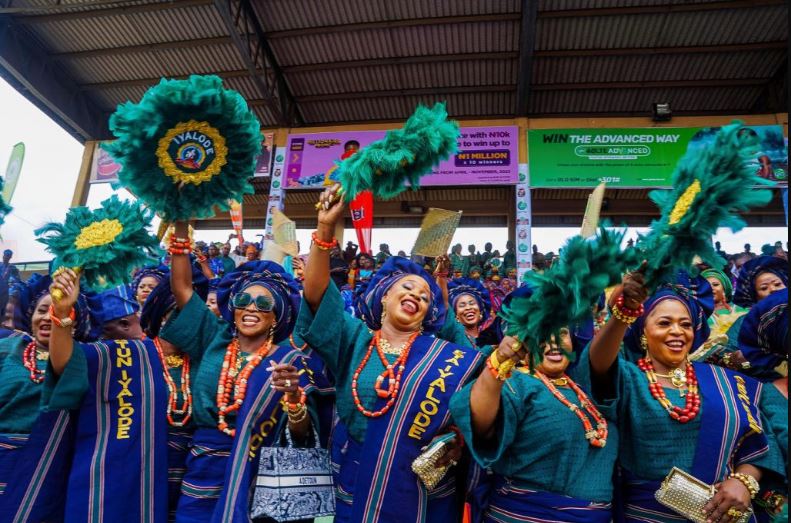
OJUDE OBA! Adopting Cultural Festivals as CSR outreaches
The Ojude Oba festival in Ogun State, an annual cultural celebration, showcases the rich heritage of the Ijebu people and holds immense potential for contributing to Nigeria’s economic diversification and sustainable development. The 2024 edition may have come and gone but the lessons learnt may not fizzle out so soon.
During the 2024 edition tagged ‘Ojude Oba: Unity and Harmony, Our Gift’, the Ogun Governor, Dapo Abiodun said the state would strive to make it international. He said the festival, which showcases the hospitality and tradition of Ijebuland, had transformed into a “significant event” that has drawn local and international tourists to the state.
The Federal Government also indicated its plans to list the festival as a UNESCO heritage event. The Minister of Culture, Arts and Creative Economy, Hannatu Musa-Musawa, stressed that these festivals would diversify the economy, reduce overdependence on oil, and help reach its mandate of generating $100 billion from tourism in 2030.
CSR REPORTERS recalls, the Ojude Oba (The King’s Forecourt) is an ancient festival of the Ijebu idiolect people of Yorubaland. The event, which occurs on the third day of Eid-el-Kabir, is a colourful parade of homage to the Awujale by the ‘regberegbes’ (the age groups), divisions, and the ancient families across the Ijebu landscape. The event includes horse riding and dancing.
The 2024 edition, which drew local and international tourists, highlighted the vibrant traditions of Yoruba culture through its sartorial opulence, dance, and fanfare.
Honestly, supporting such cultural festivals offers significant positive impacts on sustainable development for Nigeria, its citizens, and corporate entities.
While the event has so far received sponsorships from homegrown companies in telecoms, real estate, and beverage industries, more should follow still on the part of corporate organisations operating in Nigeria.
Our corporates may not know it but promoting cultural festivals aligns with CSR goals as it fosters community relations and preserves the Nigerian cultural heritage, threatening extinction. Since, the Ojude Oba festival can be a powerful tool for economic growth by attracting tourism, creating jobs, and stimulating local economies, every corporate organisation should toe this path too whenever they seek CSR outreaches of great repute.
Governor Dapo Abiodun’s commitment to internationalizing the festival and the Federal Government’s plans to list it as a UNESCO heritage event will forever underscore its potential to draw global attention/investment and corporates who sponsor such ginormous cultural event would have etched themselves as great corporate citizens.
You see? Corporates may just have the answer to the nation’s quest to reducing Nigeria’s dependence on oil by sponsoring the Nigerian cultural events, a veritable way of contributing their own quota in diversifying revenue streams through tourism.
Enough not said! CSR REPORTERS may have to shout itself hoarse, if it means reemphasizing that corporates operating in Nigeria are encouraged to adopt cultural heritage promotion as part of their CSR initiatives. By sponsoring and actively participating in festivals like Ojude Oba, businesses can enhance their community relations and engagement. This not only builds goodwill and strengthens the social fabric but also helps in preserving and promoting Nigeria’s rich cultural heritage. Such involvement demonstrates a company’s commitment to the community, fostering a positive corporate image and stronger ties with local stakeholders.
Additionally, cultural festivals provide a platform for education and awareness. Companies can use these events to promote environmental sustainability, health initiatives, and other social causes. For instance, setting up recycling programs during festivals or distributing health information can have long-lasting positive effects on the community.
The involvement of corporates in cultural festivals can also inspire other companies to adopt similar CSR approaches, creating a ripple effect that benefits the entire country. By embracing Nigeria’s cultural heritage, businesses can play a pivotal role in driving sustainable development and economic diversification. This approach not only supports the preservation of cultural identity but also aligns with global sustainability goals, such as the United Nations Sustainable Development Goals (SDGs).
YES! The Ojude Oba festival and similar cultural events represent a unique opportunity for corporates in Nigeria to engage in meaningful CSR activities that promote economic diversification and sustainable development. By investing in and supporting these cultural festivals, companies can enhance community relations, preserve cultural heritage, and contribute to the overall prosperity of Nigeria.
As businesses take on the mantle of cultural stewardship, they not only fulfill their CSR obligations but also pave the way for a more sustainable and inclusive future for all Nigerians.









